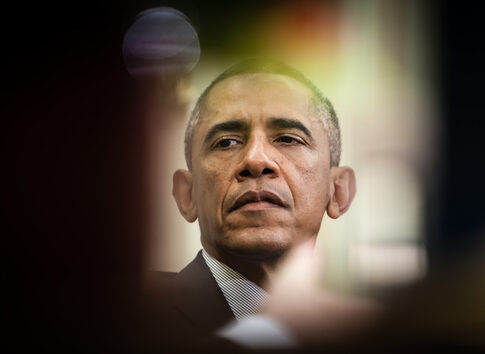Barack Obama revives the contentious “very fine people” phrase in a Milwaukee speech, reigniting political debate. Obama aims to criticize Trump for promoting division. He also pushes the Nazi and white supremacist narrative.
Obama’s Speech in Milwaukee
In a rally aimed at boosting Vice President Kamala Harris’s appeal before the approaching November election, Barack Obama revisited Donald Trump’s “very fine people” remarks from the infamous Charlottesville rally in 2017. Obama’s comments came during a campaign event in Milwaukee, where he invoked the phrase to caution Jewish and Muslim voters about Trump’s past actions and rhetoric regarding religious minorities. This maneuver sought to galvanize support amid a campaign trail populated with fiery discourse.
Obama’s critique draws upon Trump’s past, including policies like the Muslim ban and engagement with controversial figures. His remarks also alluded to a narrative of religious minorities confronting challenges during Trump’s tenure. The speech emphasized unity and positioned Kamala Harris as a figure of reconciliation to lead through divisive times—a contrast drawn purposefully against Trump’s presidency.
Wisconsin, your vote will make all the difference in this election. I’m asking you to reach out to your friends, parents, siblings, neighbors, and work with them to make a plan to vote.
Two days – that’s all the time we have left until Election Day. Let’s get this done! pic.twitter.com/AzzkFeEemR
— Barack Obama (@BarackObama) November 3, 2024
A Complex Narrative
The phrase “very fine people” stems from Trump’s response to the violence in Charlottesville, initially centered around preserving a Confederate statue. However, the subsequent clash included violent acts from various groups, becoming a venue for white supremacists. Critics argue that Trump’s remarks referred to peaceful protestors, and comprehensive condemnation of Nazis and white supremacists followed. The situation highlights the crucial role media narratives play in shaping public perception and political legacies.
Obama’s use of this phrase highlights ongoing discussions about historical narratives and the impact of political statements in today’s polarized climate. These moments underscore the volatility in public dialogue, where statements are dissected and interpreted against broader social and political contexts, often becoming rallying cries on either side of the political spectrum.
What’s worse?
A warm up comic making a single bad joke 7 hours before Trump went on stage at MSG, or a former president peddling the endlessly debunked Very Fine People hoax two days before the election? pic.twitter.com/84HMa9cN6r
— Dave Rubin (@RubinReport) November 4, 2024
Implications for Future Elections
Obama’s engagement in the electoral discourse marks a significant moment in this election cycle, where narratives from past administrations continue to influence voter sentiment. The conversation now turns to how leaders address these historical sentiments while proposing paths forward. As the election nears, key voter demographics, including religious minorities in pivotal states, may play a decisive role in shaping the nation’s political future, affecting how figures like Harris and Trump are perceived.
As these debates continue, they bring into sharp focus the power of words and their enduring legacy in American politics. The outcome may reflect the broader societal quest for unity and healing, with each side vying to present a narrative that resonates profoundly with the American public’s values and aspirations.


